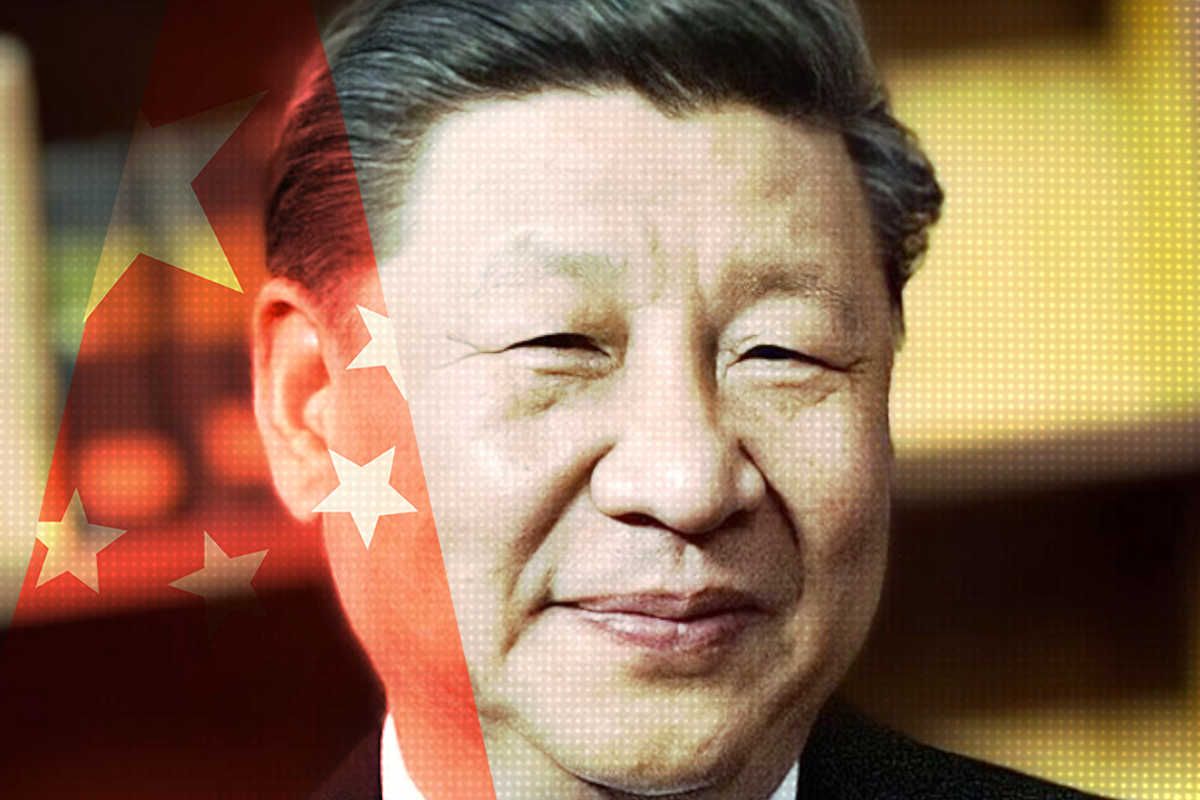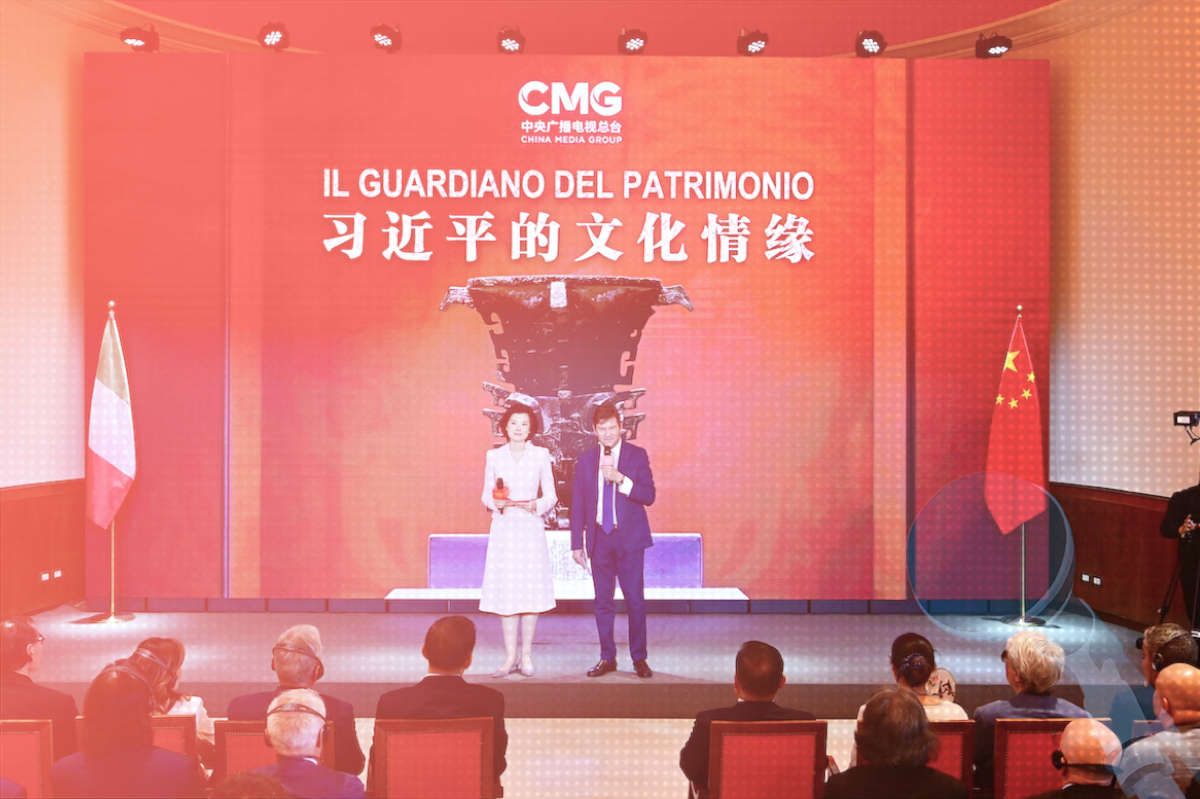Going Global
Mixing Media and Statecraft in Latin America
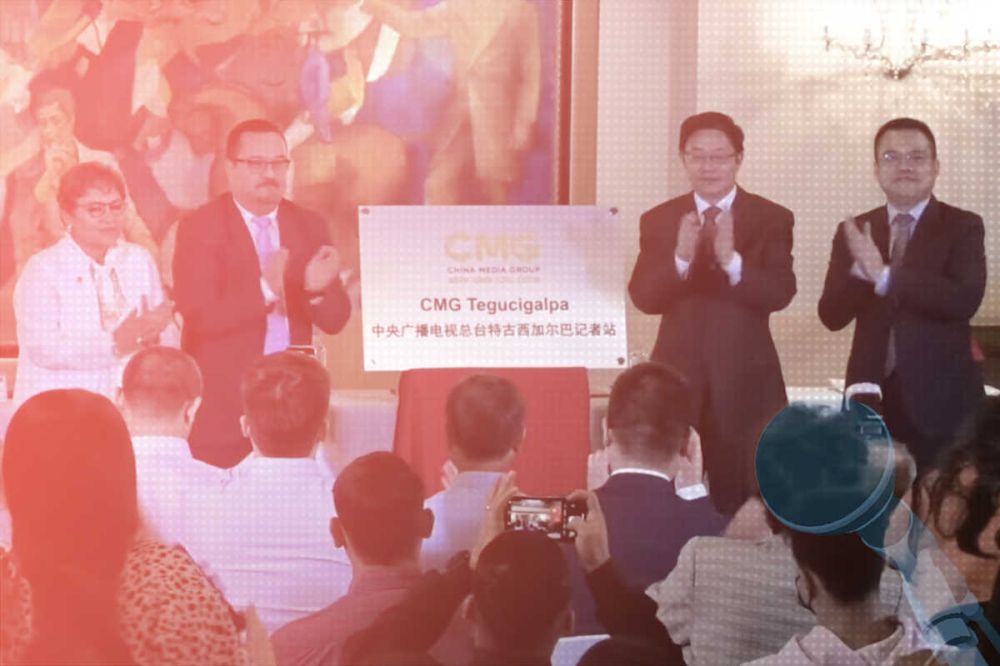
During a ceremony in the Honduran capital of Tegucigalpa on March 28, the state-run China Media Group (CMG) inaugurated a new national bureau in what was one of the first formal celebrations between China and Honduras since the Central American country formally broke off relations with Taiwan just two days earlier, on March 26.
Reporting on the event, which took place at the Presidential Palace, under the bright red glare of China’s national flag, CMG’s international broadcasting arm, China Global Television Network (CGTN), said the media conglomerate would now be “positioned to bring more in-depth coverage of Central America to audiences around the world.” The head of the conglomerate’s Latin America division, Zhu Boying (朱博英), told an audience that included Honduran Cultural Minister Anarella Velez that the new bureau would “collaborate with the country’s leading media organizations.”
But the message between the lines of this new bilateral media relationship, coming with astonishing swiftness in the wake of a diplomatic shift that left diplomats in Taiwan reeling, was that official PRC media outlets, far from reporting on the sidelines of international affairs, are active agents in advancing the interests of the Chinese Party-state — well in advance of the story.
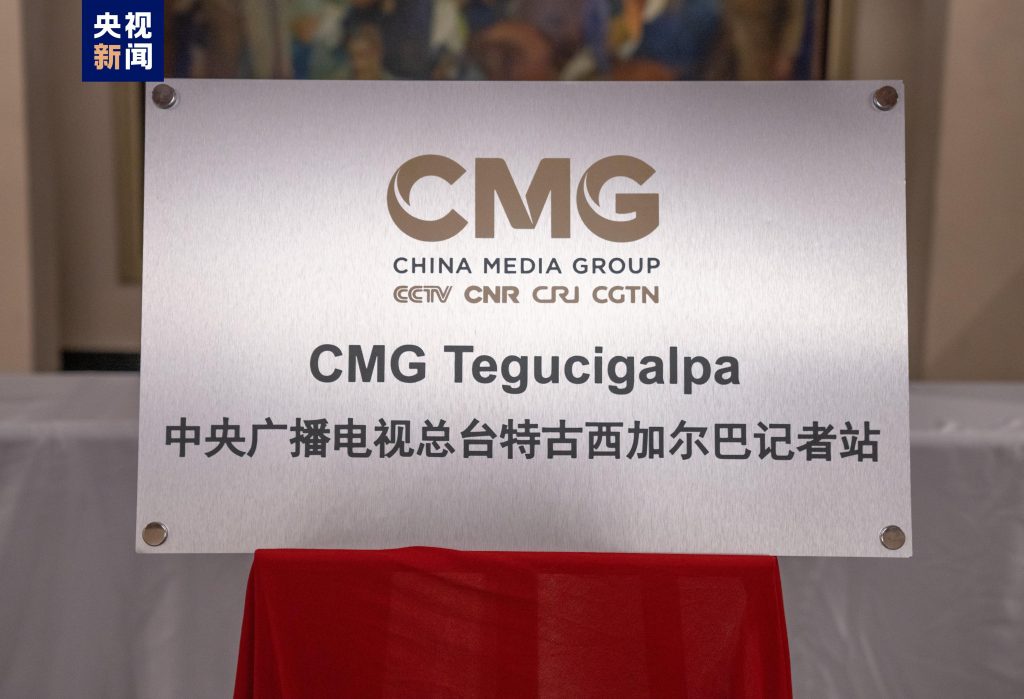
The first example of Sino-Honduran media cooperation, the broadcast on Honduran television of a two-part program called “Hand-in-Hand Toward the Future” (携手向未来) looking at the establishment of diplomatic relations between China and Honduras, came at lightning speed. It was shown on Canal 8, a state-owned channel operated by the Honduran Ministry of Culture and Telecommunications, at 7 AM Tegucigalpa time on March 26, just 13 hours after Honduras announced that it had cut ties with Taiwan.
“The speed of cooperation was amazing,” one Chinese provincial media outlet, the Qianjiang Evening News, wrote of the broadcast in a report last week, noting also that reporters from Xinhua News Agency, CCTV, and the China Media Group had been “dispatched overnight to Honduras, to bring the Chinese people more local reports.”
But the speed of cooperation was more than just amazing — it was deeply revealing.
The production by the Spanish-language division of CGTN of “Hand-in-Hand Toward the Future,” which includes interviews with ministerial officials from Honduras as well as sources such as a national sales manager for the technology giant Huawei, would have been impossible without early and deep cooperation between the China Media Group, which operates directly under the Central Propaganda Department of the Chinese Communist Party, and the country’s diplomatic and intelligence services.
The program itself includes other tantalizing clues to just how closely intertwined Party-state media outlets are with the mechanisms of Chinese statecraft.
Featured in the program is Sun Yanfeng (孙岩峰), director of Latin American research at the China Institutes of Contemporary International Relations (中国现代国际关系研究院), or CICIR. While the international relations institute presents itself publicly as a leading Chinese think tank for “extensive and multifunctional research,” it is in fact closely affiliated with the Ministry of State Security (MSS), the country’s chief intelligence agency.
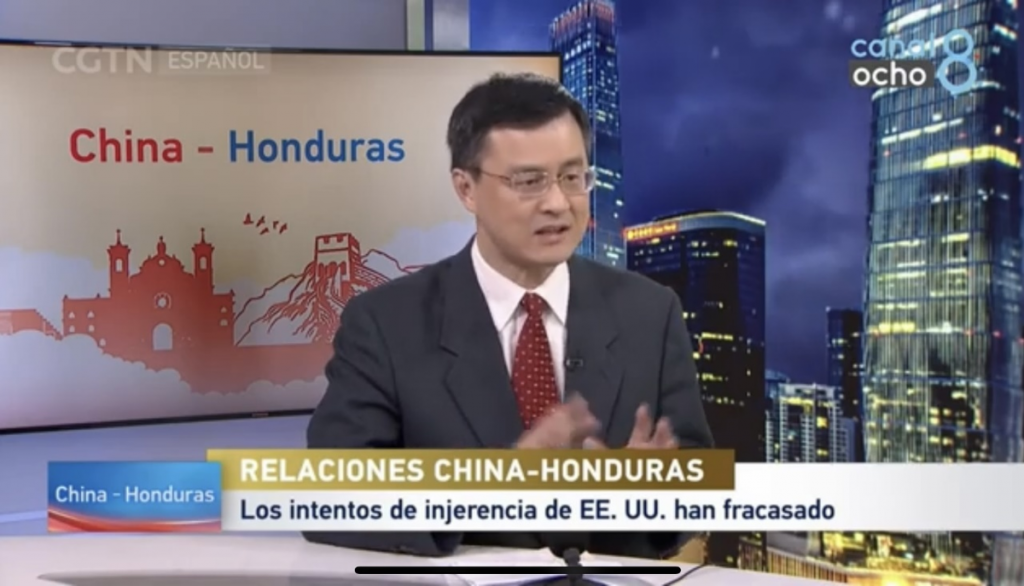
Back in February, Hong Kong’s Ming Pao newspaper noted the close relationship between CICIR and the Ministry of State Security as it reported that the former head of the CICIR, Yuan Peng (袁鹏), had been appointed as MSS deputy director.
Also shown on screen in the CGTN television spot on China-Honduras relations is Wang Hua (王华), deputy secretary of the China Foundation for Peace and Development (中国和平发展基金会), or CFPD. The foundation, which identifies itself as a non-profit organization, is operated under the International Liaison Department, or ILD, of the CCP Central Committee (中共中央对外联络部), which is tasked with maintaining ties with foreign political parties, organizations, and individuals, and has a vital role in intelligence collection.
The message between the lines of this new bilateral media relationship was that official PRC media outlets are active agents in advancing the interests of the Chinese Party-state — well in advance of the story.
Wang Hua is in fact the former head of the Latin America Office at the International Liaison Department, and at CFPD has actively advanced bilateral relations and exchange between China and partners in Latin America and the Caribbean. In August last year, CFPD signed a friendship and cooperation agreement with the ministry of education in neighboring Nicaragua, which normalized relations with the PRC in 2021, after first recognizing Taiwan in 1990.
Despite its easily ascertainable and completely undeniable link to the Party’s central leadership, CFPD has been treated seriously in even United Nations documents and proceedings as a “non-profit organization” having a purely advisory role.
CFPD is one of China’s many fronts in pushing forward the political goals of the state under the guise of society-level engagement and people-to-people exchange. The media outlets under the China Media Group umbrella similarly perform a sock-puppet role before global audiences in all of the world’s major languages. They appear as a constellation of broadcasters, newspapers, newswires, and digital platforms, while a single hand, that of the CCP Central Committee, is at work behind the scenes.
Late last week, as state media continued to relish the establishment of relations with Honduras, CGTN pushed ahead with its coverage of upcoming elections in neighboring Guatemala, set for June. Just days earlier, the country had reaffirmed ties with Taiwan, but CGTN strung together interviews with “left-wing political party leaders” (左翼政党人士), including the Guatemalan National Revolutionary Party’s Silvia Solorzano, to argue that “voices calling for the government to change its foreign policy and establish diplomatic relations with China are becoming louder and louder.”
A report about the CGTN report from the state-run China Central Television, CGTN’s parent company under the CMG umbrella, relished the fact that CGTN’s Spanish-language anchor Ji Yi (冀艺) had appeared on Guatemala’s Canal+ television network “to emphasize that the Taiwan issue is a core interest of China and that the One China principle is supported by the overwhelming majority of countries in the world.”
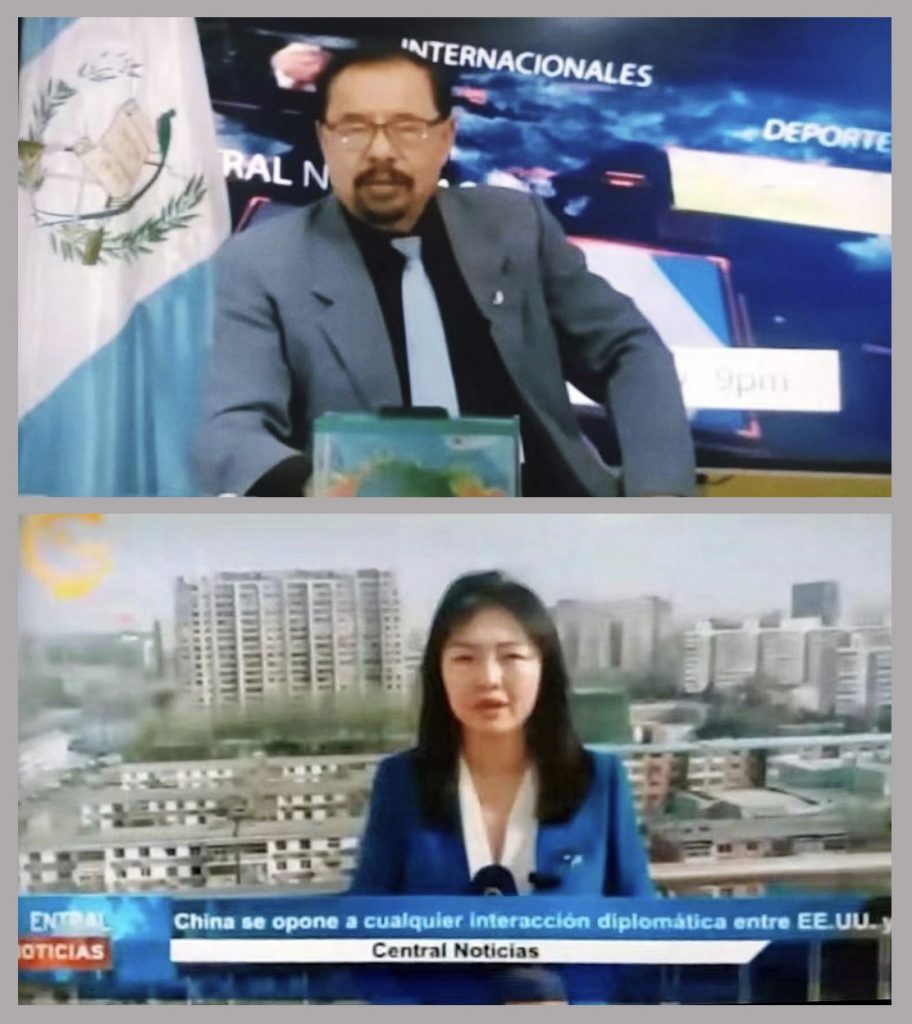
Making no attempt to disguise Ji Yi’s role not as a journalist but as a spokesperson for the official position, CCTV gushed about historic firsts. “This is the first time that a CGTN reporter has stated the Chinese government’s position on a Guatemalan TV program,” it said.
As China continues its relentless quest to push Taiwan’s diplomatic allies down into the single digits — the next country on the agenda, with decisive elections later this month, is Paraguay — or to advance other international agendas, its state media are not observing from the sidelines, and they are not waiting in the wings. They are working on the front lines, tools by their own admission of the Party-state from which they are ultimately indistinguishable.
It is a lesson politicians across the world would do well to remember. But as China’s new allies are carried off on the wave of media attention that comes with recognition from China, the puppet show can be a mesmerizing fiction.
One of the more humorous examples of this came last month, on the first full day of the new diplomatic relationship between China and Honduras, as Xiomara Zelaya, President of the International Affairs Commission of the National Congress of Honduras, and daughter of Honduran President Xiomara Castro, toured China beside Eduardo Enrique Reina, the foreign minister. At some point amid the photo ops and selfies, including one with Chinese Foreign Minister Qin Gang (秦刚), Zelaya shared a video in which she turned through the major newspapers in Beijing, showing how each had highlighted the new relationship on the front page.
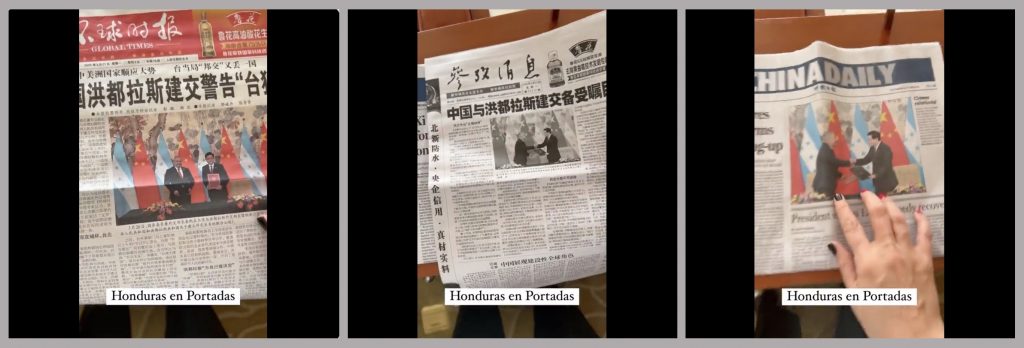
First came the Global Times. Presumably, Zelaya had no idea the paper was published by the CCP’s official mouthpiece, the People’s Daily, directly under the Central Propaganda Department. Next came Reference News (参考消息). Did she know that this foreign relations news staple was published by Xinhua, the official government news agency ranking as a ministerial-level institution under the State Council? And finally came China Daily, an English-language paper published by the Information Office of the State Council, the very same body as the Central Propaganda Department.
The lesson here was not that Honduras had arrived at the center of a new global narrative, and opened a bright new chapter. It was, quite simply, that China controlled the story.

